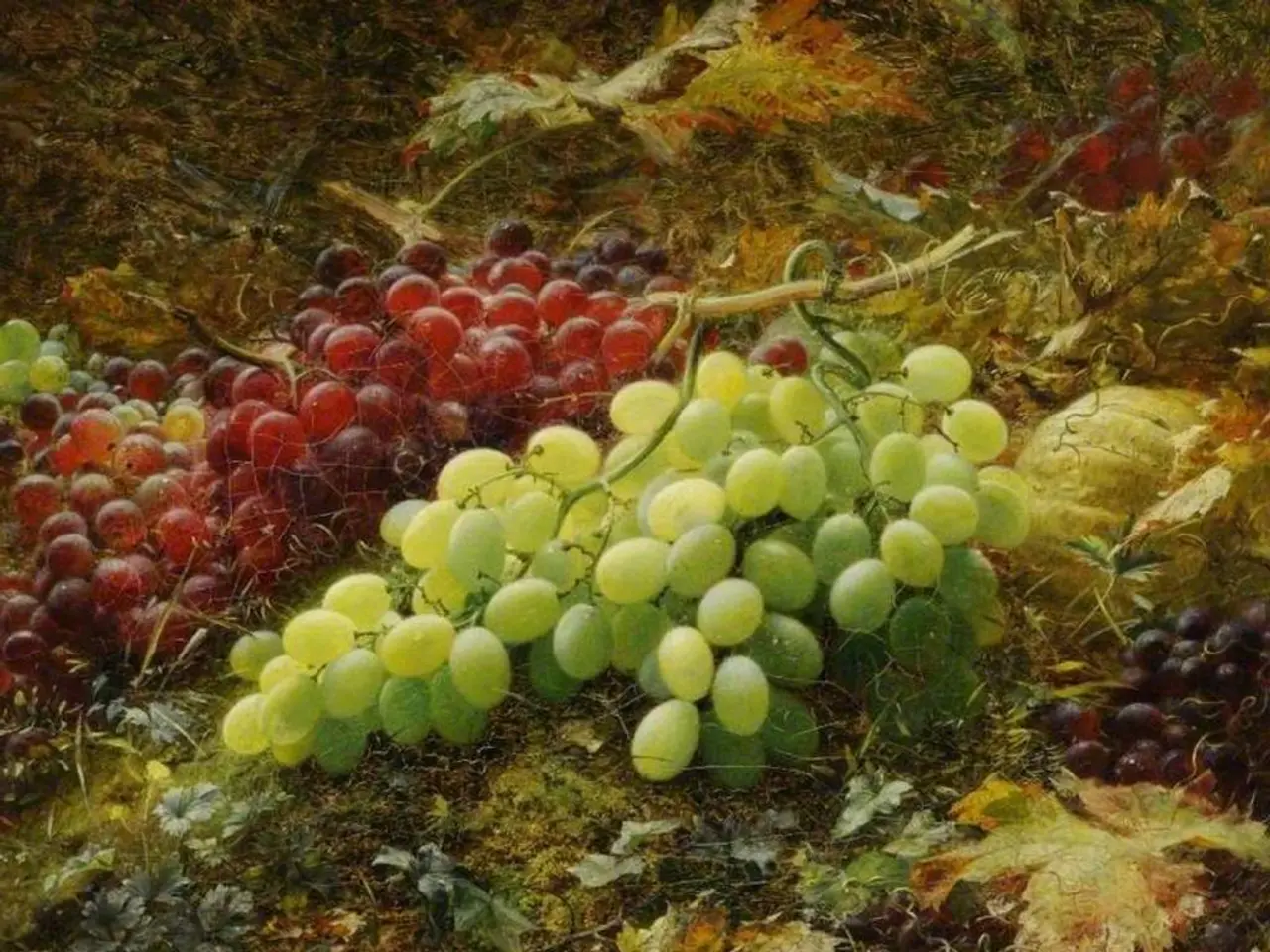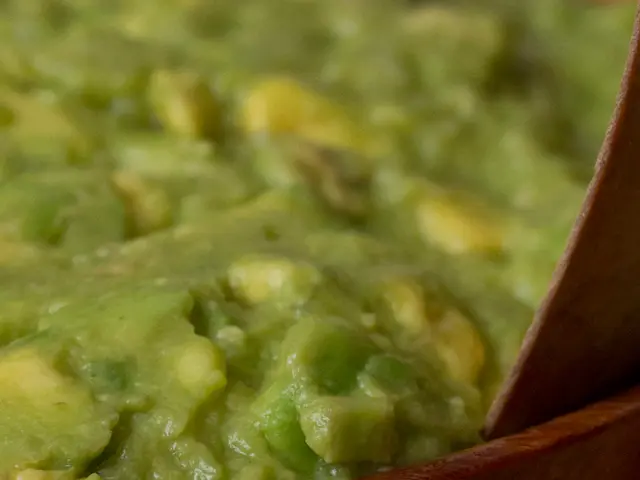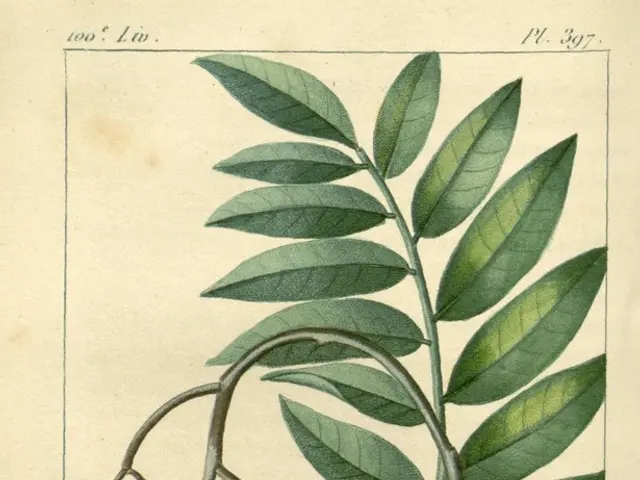Waste from grapes transformed into a robust substitute for plastic, degrades within seventeen days
In a significant leap towards sustainable packaging, scientists at South Dakota State University have developed a groundbreaking method to transform grapevine canes, a byproduct of vineyard pruning, into plastic-like materials that are both strong and biodegradable [1][2][3].
The key to this innovation lies in the extraction and processing of cellulose, a natural polymer found predominantly in the cell walls of plants. This abundant organic substance, which makes up about 40% of all plant matter on Earth, is the backbone of this new eco-friendly packaging solution [4].
The process begins with the drying and milling of grapevine canes to obtain a cellulose-rich residue that resembles cotton in texture. This raw material is then chemically treated to isolate the cellulose fiber, which is solubilized and cast onto glass plates or similar surfaces to form thin, uniform, transparent films that mimic traditional plastic wraps [1][3].
These grapevine cane cellulose films have proven to be stronger than traditional plastic bags, exhibiting superior tensile strength, while also being clear, which enhances product visibility and facilitates easy quality inspection [1][2].
But what sets these biofilms apart is their biodegradability. Unlike conventional plastics that persist for centuries, these biofilms biodegrade completely in soil within about 17 days, leaving no harmful residues [1][2][3]. This breakthrough could provide a biodegradable alternative to single-use plastics, particularly plastic bags, and help address the global issue of plastic pollution.
The innovation also adds value to an otherwise low-value or waste product, supporting circular bioeconomy principles, and offering a practical, scalable approach to eco-friendly food packaging that conserves resources and reduces pollution [1][5].
This research is led by Dr. Janaswamy, who has been exploring ways to use biopolymers as sustainable raw materials for packaging. Dr. Janaswamy has already extracted biopolymer from avocado peels, banana peels, alfalfa, switchgrass, and spent coffee grounds [6].
Anne Fennell, a distinguished professor, suggested using grapevine canes as a cellulose source for packaging films. The canes are usually mowed over, composted, or burned after harvest, but this new method repurposes them into value-added films [7].
This research has been published in the journal Sustainable Food Technology, and the scientists believe their innovation could revolutionize the packaging industry, offering a sustainable alternative to fossil fuel-based plastics [1][2][3][5].
Read also:
- Dinesh Master's Expedition: Acquiring Mango Orchard through Our Online Platform
- Expanded Plant-Based Protein Industry Forecasted to Reach a Value of $30.8 Billion by 2034, Growing at a Compound Annual Growth Rate (CAGR) of 7.1%
- London home transforms leftover materials into a striking architectural design statement
- Solar-powered LED lights contributing to eco-friendly illumination options







